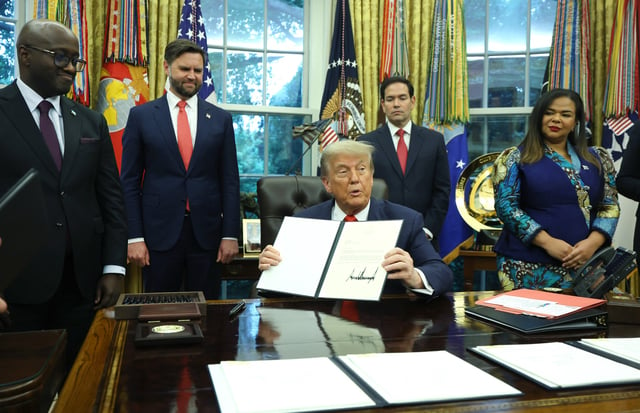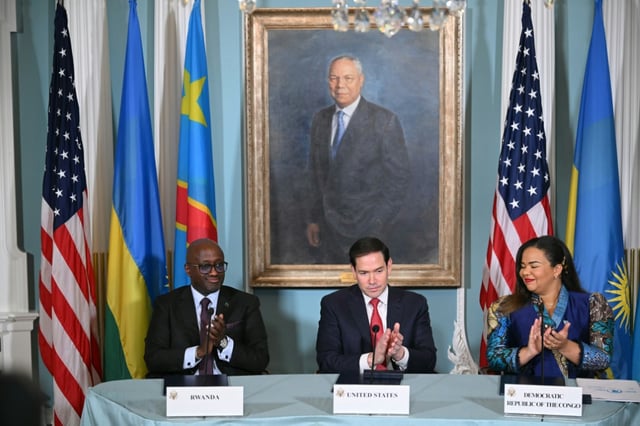Overview
- The pact entered into force on June 27, requiring both governments to observe a ceasefire and pull back troops from eastern border areas.
- President Trump said the United States will secure substantial mineral rights to Congolese cobalt, lithium and coltan under the agreement, reflecting a strategy to counter China in critical supply chains.
- It establishes a staged regional economic integration framework designed to increase transparency and attract foreign investment across Central Africa’s mineral sector.
- M23 rebels have dismissed the deal as limited and declined to sign on, triggering a parallel Doha-led mediation process with the DRC government.
- Analysts warn that sparse accountability measures and the exclusion of other armed groups such as the FDLR could undermine the accord’s long-term enforcement.

